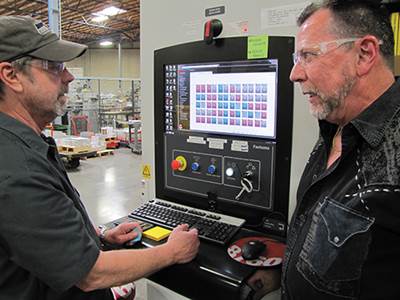The automotive industry has witnessed a remarkable transformation in recent years, driven by advancements in technology and the increasing demand for precision engineering. One crucial aspect of this evolution is the integration of Computer Numerical Control (CNC) machines within automotive shops, enabling them to gain unprecedented control over their manufacturing processes. This article explores how the adoption of in-house CNCs has revolutionized automotive manufacturing, empowering shops to enhance efficiency, quality, and overall productivity.
Enhancing Efficiency through In-House CNC Integration
Prior to the widespread use of in-house CNC machines, automotive shops heavily relied on outsourcing various components and parts production. This often resulted in delays due to lengthy lead times and limited flexibility when design modifications were required. However, with the implementation of CNC technology directly within these facilities, manufacturers can now streamline their operations by producing intricate parts on-site without relying on external suppliers.
This newfound autonomy allows for faster turnaround times as well as improved coordination between different stages of production. By eliminating intermediaries from the supply chain equation, shop owners can exercise greater control over scheduling and reduce potential bottlenecks that may arise from external dependencies.
Elevating Quality Standards with Precision Engineering
In an industry where precision is paramount, maintaining stringent quality standards is essential for both safety and customer satisfaction. With in-house CNC capabilities at their disposal, automotive shops can ensure superior accuracy throughout every stage of manufacturing.
CNC machines operate based on computer-aided designs (CAD), which enables precise replication down to minute details repeatedly. The elimination of human error associated with manual machining techniques significantly reduces defects while enhancing consistency across multiple iterations or batches.
Moreover, advanced software integrated into modern-day CNC systems provides real-time monitoring capabilities that allow operators to detect and rectify any deviations promptly. This proactive approach to quality control ensures that only components meeting the highest standards are integrated into the final automotive products.
Boosting Overall Productivity through Automation
The integration of in-house CNCs not only enhances efficiency and quality but also significantly boosts overall productivity within automotive shops. By automating various manufacturing processes, these machines can operate continuously, minimizing downtime associated with manual intervention or changeovers between different tasks.
CNC technology enables simultaneous multi-axis machining, allowing for complex geometries to be produced without requiring additional setups or extensive manual labor. This automation capability translates into increased output capacity while reducing labor costs and human resource requirements.
Furthermore, the ability to program CNC machines with specific instructions allows for rapid prototyping and iterative design improvements. Automotive manufacturers can swiftly respond to market demands by quickly adapting their production lines without significant retooling expenses or delays caused by outsourcing constraints.
Achieving Manufacturing Control: The Future of Automotive Shops
In conclusion, the integration of in-house CNCs has revolutionized automotive manufacturing by empowering shops with unprecedented control over their operations. Through enhanced efficiency, elevated quality standards, and boosted overall productivity, these advanced machines have become indispensable assets within this dynamic industry.
As technology continues to advance at an exponential rate, it is imperative for automotive shops to embrace such innovations fully. By harnessing the power of in-house CNCs effectively, they can stay ahead of competitors while delivering superior products that meet evolving customer expectations.
